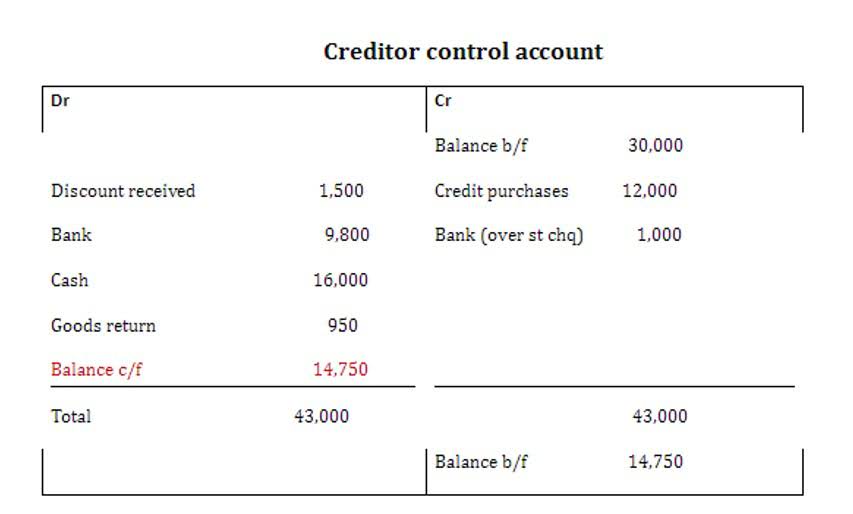
You should be able to directly call or message your bookkeeper with questions whenever necessary, and some services offer add-ons for tax planning and payroll. In a typical mid-sized company, an in-house bookkeeper might spend around hours a week on financial tasks, including transaction recording, payroll processing, and financial reporting. For a business owner, overseeing these tasks can take up an additional 5-10 hours per week. This is time that could be better spent on strategic planning, market analysis, or customer engagement. Outsourced bookkeeping services handle these tasks autonomously, freeing up to 35 hours a week for you and your team to focus on core business activities.

WHAT WE DON’T DO
The Securities and Exchange Commission (SEC) reviews the reports to make sure that you’re compliant. Additionally, when you have accurate books, you can qualify for write-offs that will save you money when you go to file your taxes. With all of this talk about finances and financial reporting, taxes come to mind. If you want to get back some of that precious time wasted poring over your books, outsourcing your bookkeeping is the way to go. Beyond day-to-day operations, having your bookkeeping taken care of by a professional expedites the tax filing process. You’ll have all the numbers you need to fill out the forms quickly with IRS-compliant reports for your tax return.
Step 5 – Let the Bookkeeper Do the Bookkeeping
Data-driven insights from KPIs help you to identify opportunities for optimization, or know when to seek alternative solutions. Review the proposals you received from shortlisted bookkeeping services. Prepare a list of interview questions that assess their expertise, experience, and fit for your specific needs. Bookkeeping is the process of keeping track of a business’s financial activities and debiting and crediting certain accounts. Each accounting system includes a chart of accounts that details both individual accounts and account categories.
Top Picks for Ecommerce Accounting Software
AllBusiness.com is a business Web site that provides information and services to small businesses. Outsourcing your company’s accounting processes frees up significant time that can be used for strengthening and expanding the firm. Back office duties may be a significant outsourced bookkeeping services distraction from day-to-day operations, and in-house accounting might create a conflict of interest. All of these time sinks and diversions must be eliminated so employees can focus on what is needed most – focus on company goals for profitability.

Bookkeeping Versus Accounting

Because online bookkeeping uses virtual platforms, business owners can see their records anytime, including the cash flow and balance sheet. Outsourcing bookkeeping can be a strategic solution for businesses https://www.bookstime.com/ of all sizes. It can help to streamline financial operations, save costs, and give you valuable insights. AccountsBalance founders Nate and Connor firmly believe in outsourcing because they lived it.
Get Your First Month of Bookkeeping for FREE!
- Each accounting system includes a chart of accounts that details both individual accounts and account categories.
- Online bookkeeping services typically range from around $200 per month to well over $500 per month if you opt for more frequent reports or back-office add-ons.
- If you’re interested in learning more about outsourcing your business’s bookkeeping tasks, the outsourced accounting team at LBMC is here to help.
- 250+ small-business products reviewed and rated by our team of experts.
Many accountants offer bookkeeping as part of their accounting services or are willing to get you caught up before tax season. But the catch is that a CPA will generally charge more per hour than a bookkeeper would. They’ll typically charge their hourly rate, which is higher than a bookkeeper’s, because of the hard work in getting accredited. As a rule of thumb, the more complex your financial situation is, the more outsourcing bookkeeping services will cost. Outsourced bookkeeping is an option if you want to outsource your books and you have a small business.
Benefits of Outsourced Bookkeeping Vs. In-house

Outsourced bookkeepers offer specialized accounting solutions tailored to the unique needs of small businesses, ensuring accurate financial records and compliance with tax regulations. This support can be crucial for the growth and sustainability of a small business, allowing owners to concentrate on achieving their business goals. It offers flexibility, expertise, and can be a cost-effective solution. However, it’s crucial to find the right partner and maintain open communication to ensure success.
- These time savings are one of the major advantages of working with an outsourced bookkeeping firm, but they’re far from the only benefit.
- Finance management is an essential component of running a successful business, but it can also be a time-consuming and complex chore.
- They offer remote, flexible services often at a lower cost, using cloud-based technologies.
- Again, there is a lot of confusion around the differences between an accountant and a bookkeeper.
- Along with typical financial reporting (like profit and loss reports and balance sheets), you’ll get a KPI (key performance indicator) report and profitability analysis, among others.
